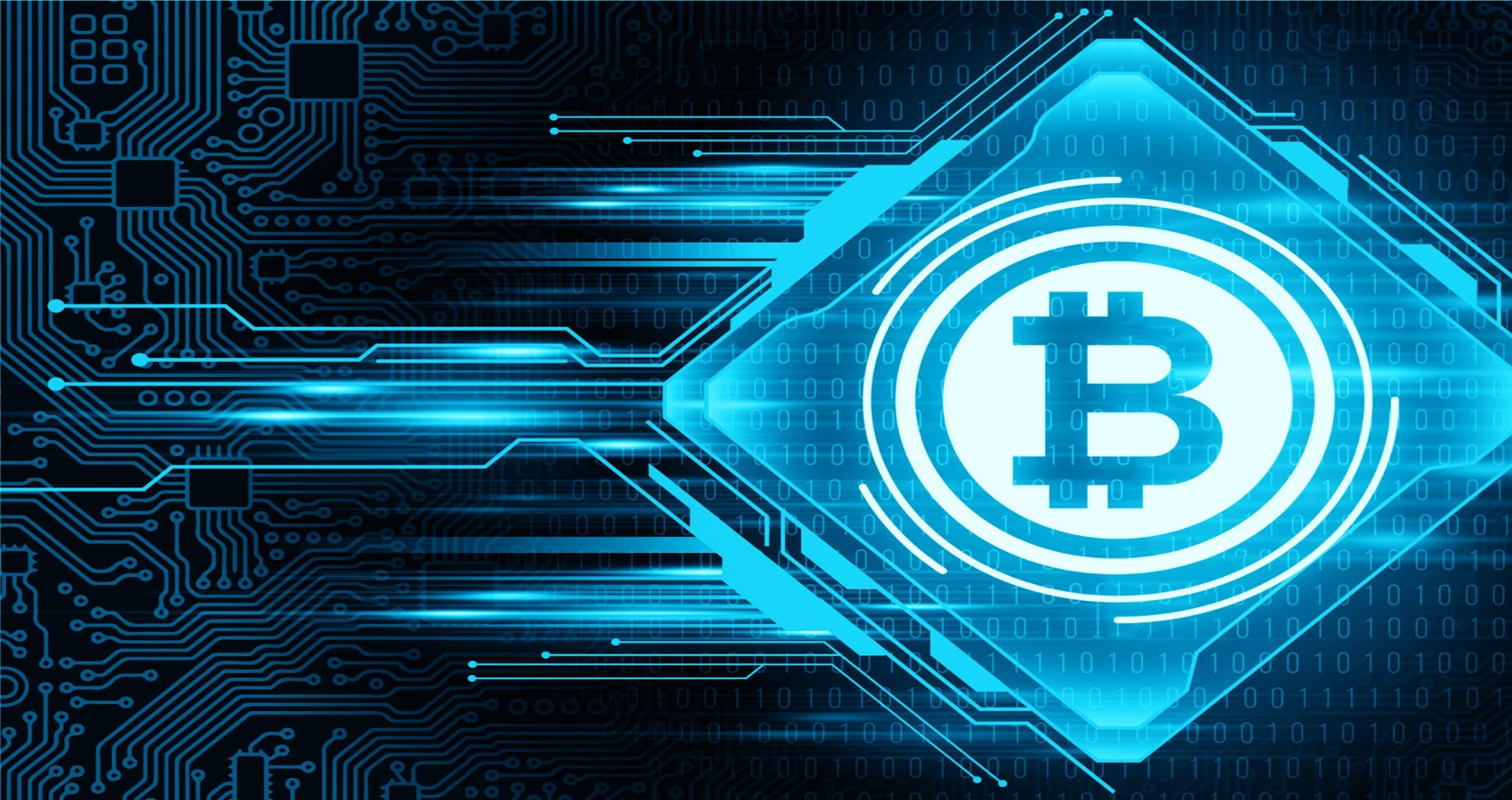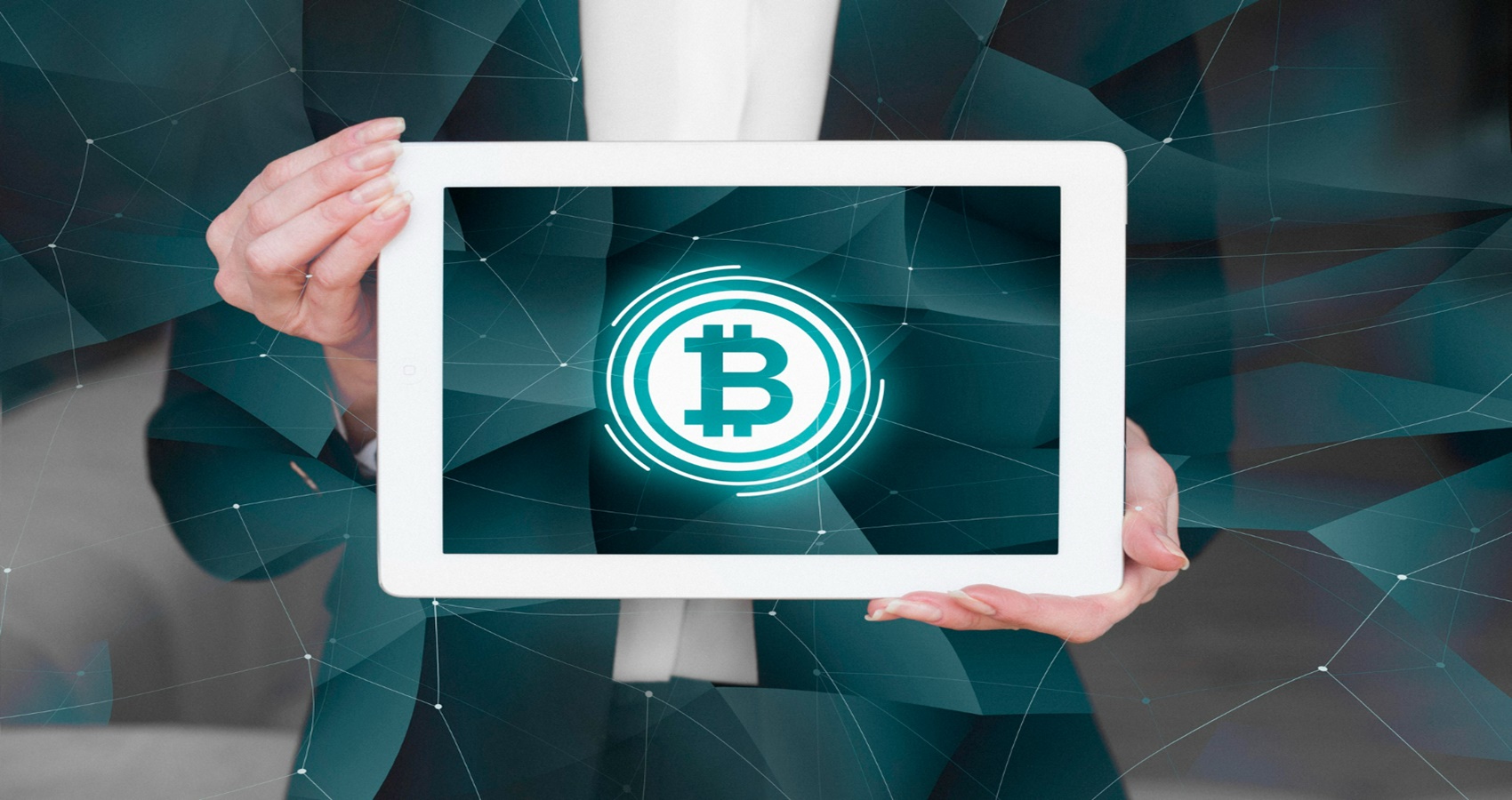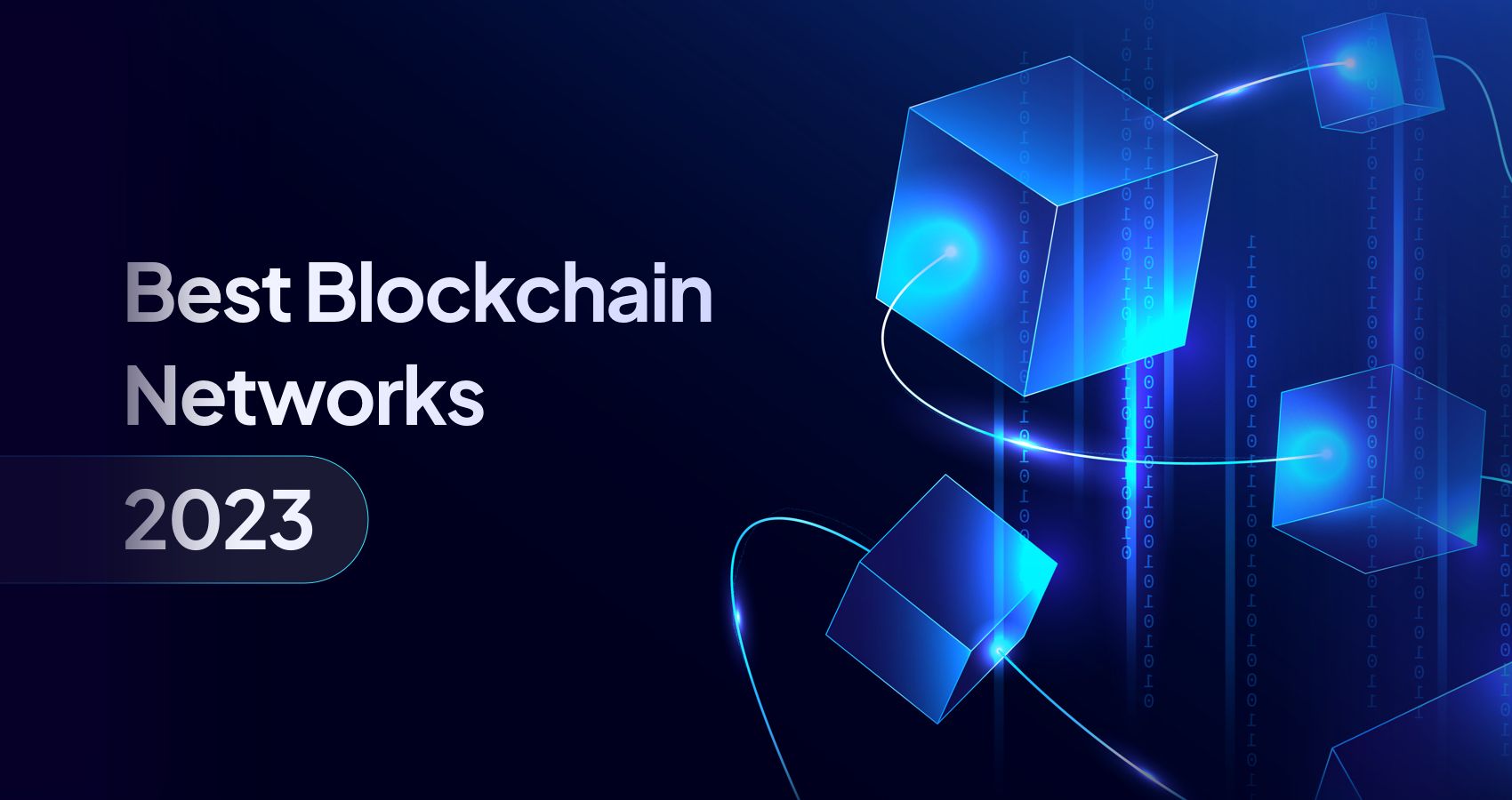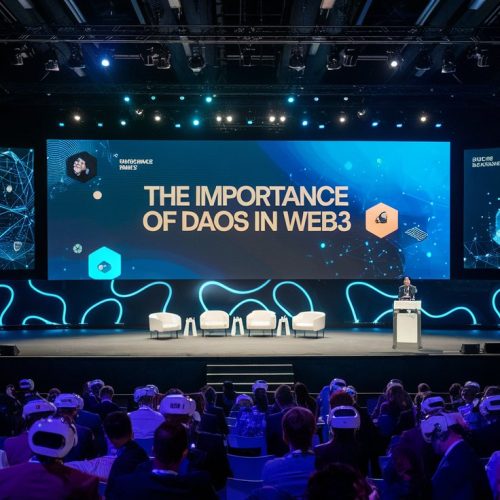Blockchain technology is a decentralized and distributed ledger system designed to record transactions across a network of computers in a secure and transparent manner. Unlike traditional centralized databases, a blockchain is characterized by its immutability, transparency, and cryptographic security. The basic idea is to create a tamper-proof and transparent record of transactions that can be shared across a network of participants without the need for a central authority. Key Components of Blockchain Technology: 1. Blocks: Transactions are grouped into blocks, each containing a unique identifier called a cryptographic hash. Each block is linked to the previous one, creating a chain of blocks—hence the name “blockchain.” 2. Decentralization: No single entity has control over the entire blockchain. Instead, it operates on a peer-to-peer network where every participant holds a copy of the entire ledger. This decentralization enhances security and removes the need for a central authority. 3. Consensus Mechanism: Consensus mechanisms ensure agreement among participants on the validity of transactions, maintaining the integrity of the ledger. Common consensus mechanisms include Proof of Work (PoW) and Proof of Stake (PoS), each with its own way of validating transactions. 4. Cryptographic Hashing: Transactions are secured through cryptographic hashing, creating a unique identifier for each block. This process is crucial for maintaining the chain’s integrity and security. Even a small change in the transaction data would result in a completely different hash. How Blockchain Works: Use Cases and Applications: In summary, blockchain technology operates as a decentralized and transparent ledger system, creating a secure and tamper-proof record of transactions. Its applications extend beyond cryptocurrencies, encompassing various industries where transparency, security, and decentralization are paramount. The decentralized nature of blockchain eliminates the need for intermediaries, fostering trust and efficiency in digital transactions.
Top 10 Blockchain Startups to Watch in 2024
In the fast-paced world of blockchain technology, innovation and evolution are constants. As we step into 2024, the blockchain landscape is buzzing with anticipation for the rise of groundbreaking startups that promise to redefine the industry. In this blog post, we will explore the top 10 blockchain startups to keep a close eye on in 2024, each poised to make a significant impact on the decentralized ecosystem. 1. Quantstamp: Securing the Future of Smart Contracts Kicking off our list is Quantstamp, a blockchain startup dedicated to ensuring the security and reliability of smart contracts. As the adoption of decentralized applications (DApps) continues to soar, Quantstamp’s automated and decentralized audit solutions are becoming increasingly crucial in safeguarding the integrity of these smart contracts. 2. Aave: Transforming DeFi Lending and Borrowing Aave has been a trailblazer in the decentralized finance (DeFi) space, offering innovative lending and borrowing solutions. With a user-friendly interface and a commitment to creating a truly decentralized financial ecosystem, Aave is set to play a pivotal role in reshaping traditional finance structures. 3. Immutable X: NFTs on the Ethereum Scaling Solution Immutable X is making waves in the world of non-fungible tokens (NFTs) by providing a scalable and gas-free trading solution on the Ethereum network. As NFTs continue to captivate creators and collectors alike, Immutable X’s commitment to sustainability and efficiency positions it as a standout player. 4. Flow: Powering the Next Wave of Blockchain Gaming Flow has emerged as a blockchain platform tailored for the gaming industry, offering a developer-friendly environment for creating decentralized applications and games. With partnerships with major gaming studios, Flow is set to revolutionize how we interact with digital assets within virtual worlds. 5. Polygon: Enhancing Ethereum Scalability As Ethereum works towards its 2.0 upgrade, Polygon has already positioned itself as a leading Layer 2 scaling solution. Enabling faster and more cost-effective transactions, Polygon is likely to play a pivotal role in addressing Ethereum’s scalability challenges. 6. Audius: Decentralized Music Streaming Audius is disrupting the music industry by providing a decentralized streaming platform that directly connects artists with their listeners. As concerns about fair compensation for artists grow, Audius offers a transparent and decentralized solution. 7. Serum: Advancing DeFi on the Solana Blockchain Serum is at the forefront of decentralized finance on the Solana blockchain. With its decentralized exchange (DEX) and commitment to providing high-speed, low-cost transactions, Serum is a key player in the Solana DeFi ecosystem. 8. Uniswap: Decentralized Exchange Dominance Uniswap remains a heavyweight in the world of decentralized exchanges. As the pioneer of automated market makers (AMMs), Uniswap continues to evolve, offering decentralized trading solutions that prioritize user accessibility and liquidity provision. 9. Chia Network: Green Blockchain Farming Chia Network is redefining the consensus mechanism with its eco-friendly approach to blockchain farming. By utilizing proof of space and time, Chia Network aims to address the environmental concerns associated with traditional proof-of-work blockchains. 10. Filecoin: Decentralized Cloud Storage Closing our list is Filecoin, a blockchain startup tackling the challenges of centralized cloud storage. Through its decentralized storage network and integration with the InterPlanetary File System (IPFS), Filecoin is paving the way for a more secure and resilient data storage ecosystem. In conclusion, these 10 blockchain startups are poised to shape the narrative of decentralized technology in 2024 and beyond. Whether it’s enhancing security, revolutionizing finance, or transforming digital entertainment, these startups exemplify the innovative spirit that continues to drive the blockchain industry forward. Keep a close eye on these names as they navigate the ever-evolving landscape of decentralized possibilities.
How to Build A Decentralized Web3 Ecosystem
The internet has been a transformative force, shaping the way we communicate and engage with technology. From the early days of read-only websites (web 1.0) to the user-generated content era (web 2.0), we’ve now entered the era of decentralized intelligence – Web3. This evolution entrusts users with control over their data, leveraging blockchain and smart contracts for ownership. In this guide, we’ll delve into the importance of Web3 ecosystems, their core components, and the best practices for building them. Understanding Web3 Ecosystems: Web3, often hailed as the next step in the internet’s evolution, utilizes technologies like blockchain, AI, and Natural Language Processing to create a more intuitive and connected internet ecosystem. It prioritizes personalization, focusing on user intent and context, promoting data sharing and accessibility across applications and platforms. Components of Web3 Ecosystems: Decentralization is a cornerstone of Web3, reducing bureaucratic risks and fostering innovation. The core components of a Web3 ecosystem include blockchain technology, crypto assets, smart contracts, decentralized applications (dApps), and interoperability. Building a Web3 Ecosystem: To establish a thriving Web3 ecosystem, consider the following steps: Conclusion: Building a decentralized Web3 ecosystem is akin to nurturing a project from its infancy. As the world embraces web3 technologies, understanding its fundamentals and learning from successful ecosystems like Solana’s DeFi is crucial. By following these comprehensive steps, you can contribute to the growth of the decentralized web3 landscape and shape the future of the internet. Start your journey into web3 with reliable training resources and gain fluency in this transformative technology.
The Blockchain Revolution: Why 2023 Is the Year of Blockchain Skills
Blockchain technology is rapidly emerging as a transformative force, holding promise for enterprises worldwide. Its potential to address complex challenges positions it as a sought-after solution, driving an increased demand for blockchain skills. Multiple data points substantiate the growing need for blockchain professionals, making it one of the most coveted skills in 2023. In 2019, the demand for blockchain-based jobs experienced a staggering 300% growth compared to the previous year, as reported by Glassdoor. For those familiar with the blockchain landscape, this growth signifies a plethora of exciting career opportunities within the blockchain sector. But what exactly makes blockchain one of the most sought-after skills in 2023? This article delves into the factors fueling this demand, offering insights into the pivotal role blockchain plays across various industries. Additionally, we explore the key themes underpinning the rising demand for blockchain expertise and provide valuable information on the career prospects within the blockchain technology field. Blockchain’s Remarkable Growth Potential The blockchain technology landscape has evolved significantly over the years. While the introduction of cryptocurrencies initially brought blockchain into the limelight, its impact has transcended far beyond digital currencies. Since 2009, blockchain has become a commonly discussed topic in corporate boardrooms, signaling its potential to revolutionize various industries. Consequently, the demand for blockchain skills is not merely a reaction to a disruptive technology but an essential response to meet enterprises’ evolving needs. Numerous research firms have consistently emphasized the tremendous potential for increased investments in blockchain technology. Projections suggest that by 2023, global expenditures on blockchain solutions will reach a staggering $15.9 billion. This is a remarkable ascent from the $2.7 billion spent on blockchain technology in 2019, with significant disruptions observed in the finance sector. Beyond finance, blockchain’s value extends into other sectors, such as food and agriculture, where it represents a $41.9 million market. The 2020 Global Blockchain Survey by Deloitte reveals that nearly 39% of senior executives and practitioners have already adopted blockchain into their production processes. When considering companies with revenues exceeding $100 million, the adoption rate climbs to 41%. This substantial potential for growth within the blockchain industry forms a compelling rationale for the surging demand for blockchain skills. In conclusion, the increasing demand for blockchain skills in 2023 is not just a passing trend; it is a response to the transformative force that blockchain represents. As businesses across diverse sectors continue to recognize the value of blockchain technology, professionals with blockchain expertise are poised for promising and rewarding career opportunities in this dynamic and ever-evolving field. The burgeoning demand for blockchain skills in 2023 is no happenstance; it is driven by a confluence of factors that underline the pivotal role of blockchain in the digital era. In the wake of recent global challenges, businesses have had to adapt, transforming their supply chains and operational paradigms. With customers increasingly relying on digital platforms, the need to reach them where they are has become paramount. Blockchain, the top tech skill of 2023, offers a host of advantages that underscore its indispensability as a skill set for the future. 1. Enhanced Security Blockchain and security are inseparable partners. Unlike traditional single-server data storage, blockchain distributes information across a network of computers, rendering it virtually impervious to hacking. The decentralized nature of data storage eliminates the vulnerabilities associated with centralized systems, providing a robust shield against transaction data breaches. 2. Unwavering Transparency Transparency is a cornerstone of blockchain technology. Altering records within the blockchain is virtually impossible without the consensus of network participants. Even a minor change in a single record reverberates across the entire chain, ensuring the transparency of all blockchain data. This characteristic safeguards the integrity of the blockchain, making it an invaluable tool for businesses seeking to enhance accountability. 3. Expedited Transactions Blockchain revolutionizes transaction speed by eliminating the need for intermediaries. Negotiations, settlements, and clearings transpire with swiftness, as all records are meticulously maintained in a single digital ledger. This feature reduces the risk of interruptions and streamlines the entire process, facilitating rapid, efficient transactions. 4. Cost-Efficient Operations Blockchain provides permissioned access to all network participants, ensuring the immutability of data. The absence of intermediaries results in significant cost savings, with transactions costing nearly half of what they would through traditional channels. This cost efficiency is a key driver for businesses looking to optimize their financial operations. 5. Traceability Benefits Blockchain’s audit trail offers a valuable asset in the form of traceability. It meticulously tracks an asset’s origins and all the milestones it has traversed. Moreover, the audit trail identifies the users responsible for any asset modifications and provides a timestamp for each change. This level of transparency ensures accountability and facilitates the monitoring of asset history. The benefits outlined above translate into tangible advantages for enterprises seeking long-term cost efficiency and performance improvements. Blockchain’s potential to enhance security, transparency, transaction speed, cost-efficiency, and traceability establishes a strong foundation for its adoption among organizations. Consequently, the demand for skilled blockchain professionals continues to soar, as businesses recognize the transformative potential of blockchain technology in the evolving landscape of digital business. A closer examination of the blockchain job market is crucial to solidify our understanding of why blockchain ranks as one of the most sought-after skills in 2023. A recent LinkedIn report unequivocally positions blockchain as a leading tech skill for the year. This marks a significant departure from the 2019 report, which did not even feature blockchain technology on its radar. The meteoric rise of blockchain in the tech skills hierarchy might seem sudden, but it’s the result of a gradual shift in focus within the enterprise blockchain sphere. Practitioners in this field have transitioned from merely proving the utility and compliance of blockchain technology to actively creating innovative blockchain-based solutions for a diverse range of practical use cases. 1. Blockchain in Governance Another pivotal catalyst for the surging demand for blockchain skills is its application in governance. Nations such as the United States, Switzerland, and China have embraced blockchain technology, recognizing its potential to revolutionize
Revolutionizing Democracy: Blockchain and Secure Voting Systems
Democracy stands as one of the fundamental pillars of modern society, where citizens exercise their right to choose their leaders and shape their nation’s future. For democracy to thrive, trust in the electoral process is paramount. Traditional voting systems, relying on paper ballots or electronic voting machines, have vulnerabilities that can compromise the sanctity of elections. Concerns like hacking, data manipulation, and inaccurate tallies have raised questions about the trustworthiness of these systems. Blockchain technology has emerged as a groundbreaking alternative in response to these challenges. In this blog, we will delve into the transformative potential of blockchain in revolutionizing democracy, with a focus on secure voting systems. How Blockchain Transforms Voting Security and Transparency Blockchain offers a decentralized and immutable ledger where each vote is securely recorded. Votes are time-stamped and cryptographically sealed, making tampering impossible. Beyond this, blockchain’s security can be further enhanced through techniques like multi-factor authentication and biometric verification. These additional layers of security bolster the trustworthiness of the voting process, assuring citizens that their votes will be counted accurately. Accessibility Blockchain-based voting can be conducted online, making it accessible to a broader range of voters. This is especially significant in a democratic country, where accessibility for all citizens is a cornerstone of democracy. To enhance accessibility, blockchain systems can incorporate user-friendly interfaces, mobile applications, and responsive design. These features cater to a wide demographic, including elderly and disabled citizens, ensuring that everyone has an equal opportunity to cast their votes. Identity Verification Blockchain can integrate robust identity verification mechanisms, ensuring that voters are eligible and unique. Solutions such as biometric authentication, government-issued digital IDs, and secure key pairs can be employed to confirm voters’ identities. These cutting-edge verification methods not only prevent fraudulent voting but also enhance the overall reliability and trustworthiness of the electoral process. Real-time Results Counting votes with blockchain technology is automated and instantaneous. Furthermore, blockchain can implement secure, real-time result sharing. Anyone interested can track the results through public keys as they come in, reinforcing transparency and trust. Live tracking reduces the waiting time for voters, ensuring that they receive timely and up-to-date information about the voting process. Immutable Records Every vote recorded on the blockchain is a permanent, unchangeable entry. This permanence ensures that election data remains intact and can be audited at any time. It also protects against any potential manipulation or revision of voting records, reinforcing the long-term integrity of the voting system. Decentralization Blockchain operates on a decentralized network, reducing the risk of a single point of failure. Decentralization is key to ensuring that no single entity can exert undue influence over the voting process. Tamper Detection If an unauthorized change or tampering attempt is made to the voting data, the blockchain’s structure immediately detects it. This feature enhances the overall security of the voting system, alerting authorities to any potential issues and enabling them to take swift corrective action. Data Privacy Blockchain can incorporate advanced encryption techniques to protect the privacy of voters. Ensuring that personal information is safeguarded while vote authenticity is maintained is crucial. Innovative privacy-focused blockchain protocols like zero-knowledge proofs add an extra layer of security. Open-Source Solutions The use of open-source blockchain platforms encourages transparency in the development of voting systems. This openness allows for public scrutiny, peer review, and continuous improvement, further instilling confidence in the technology. Audit Trails Blockchain systems leave behind a transparent and permanent audit trail, which can be used to verify the accuracy of the election results. This feature simplifies post-election audits and reinforces confidence in the integrity of the process. For instance, several pilot projects and local elections have tested blockchain-based voting systems in the United States. West Virginia conducted a pilot project allowing overseas military personnel to vote using a blockchain platform. While these experiments are promising, they are just beginning a journey to revolutionize voting. Conclusion Utilizing blockchain technology in voting systems marks a revolutionary chapter in the history of democracy. With its promise of enhanced security, transparency, and accessibility, blockchain has the potential to reshape the electoral landscape, ensuring that citizens’ fundamental right to vote is safeguarded like never before. Voting systems are evolving from traditional methods with inherent vulnerabilities to a new era of blockchain-powered voting, where trust is bolstered through cryptographic security, real-time results, immutable records, and decentralized operation. The world explores these innovative solutions through pilot projects and local elections, it is clear that the journey to revolutionize voting has begun with blockchain technology, leading the way towards a more secure and transparent democratic future.
The Top 10 Blockchains: Exploring the Leading Innovations
In the ever-evolving landscape of blockchain technology, numerous platforms have emerged, each offering unique features and capabilities. Whether you’re an investor, developer, or simply curious about this groundbreaking technology, understanding the top blockchains is essential. In this comprehensive blog, we’ll explore the top 10 blockchains, providing an in-depth overview of their key features, use cases, recent developments, and the broader implications they have on various industries. 1. Ethereum (ETH) Ethereum pioneered the idea of smart contracts, which empower developers to build decentralized applications (DApps). It’s the go-to platform for blockchain-based projects, facilitating the tokenization of assets and DeFi (Decentralized Finance) applications. Ethereum is currently undergoing a transition to Ethereum 2.0, a significant upgrade focused on enhancing scalability and energy efficiency. The transition to Proof of Stake (PoS) consensus and the integration of Layer 2 solutions like Optimism and Arbitrum are notable recent developments. 2. Binance Smart Chain (BSC) Binance Smart Chain, developed by the Binance exchange, offers high speed and low-cost transactions. It’s a popular choice for DeFi and NFT (Non-Fungible Token) projects, allowing seamless integration with the Binance ecosystem. Recent developments include cross-chain compatibility with Binance Chain and increased adoption by DeFi projects. The Binance ecosystem continues to expand with various projects and services, further solidifying BSC’s position. 3. Cardano (ADA) Cardano stands out for its scientific approach to blockchain development. It focuses on sustainability, scalability, and interoperability. Cardano is ideal for developing decentralized applications, smart contracts, and its recent Alonzo upgrade has enabled the launch of DeFi projects and NFT marketplaces on the platform. Ongoing developments in the Cardano ecosystem include partnerships with governments and organizations to explore blockchain solutions for various industries. 4. Solana (SOL) Solana’s high-speed blockchain offers rapid transaction confirmation and scalability. It’s a hub for DeFi projects, NFTs, and Web3 applications, making it a dynamic force in the blockchain space. Solana’s recent growth includes numerous DeFi and NFT projects migrating to the platform due to its performance and low transaction fees. Projects like Serum and Raydium are bringing DeFi on Solana to new heights. 5. Kalptantra Kalptantra is a public permissioned blockchain platform designed to abide by the laws of the land, providing users with a secure and flexible environment. Kalptantra requires all users to undergo a Know Your Customer (KYC) or Know Your Business (KYB) process, ensuring regulatory compliance and preventing unauthorized or illicit activities within the blockchain network. Users on the Kalptantra blockchain have complete control over their assets and ownership. They can manage their digital assets, execute transactions, and maintain sovereignty over their data without relying on centralized authority. 6. Polkadot (DOT) Polkadot’s unique parachain architecture facilitates interoperability between different blockchains. This platform connects multiple blockchains, enabling seamless data and asset transfer. Polkadot’s recent developments include ongoing parachain auctions, allowing more projects to integrate with the Polkadot network. The Polkadot ecosystem is expanding, with new parachains and bridges connecting various blockchains. 7. Chainlink (LINK) Chainlink is the leader in blockchain oracles, providing real-world data to smart contracts. It’s integral to DeFi, enabling these contracts to interact with external information sources. Recent developments include collaborations with various industries, such as insurance and gaming, expanding its use cases beyond DeFi. The expansion of Chainlink services to different blockchains, including Polygon and Avalanche, contributes to its widespread adoption. 8. Avalanche (AVAX) Avalanche boasts sub-second transaction finality and customizable blockchains, making it ideal for developers to create unique applications. Its recent developments include the Avalanche Bridge, allowing users to transfer assets seamlessly between Avalanche and Ethereum networks. Avalanche’s expanding ecosystem encompasses DeFi, NFTs, and cross-chain interoperability, with projects like Pangolin and Wonderland gaining popularity. 9. Tezos (XTZ) Tezos focuses on self-amendment and on-chain governance. It’s well-suited for creating smart contracts, and its ability to adapt to changing requirements sets it apart. Recent developments include the adoption of zero-knowledge proof technology, enhancing privacy and scalability. The Tezos ecosystem is actively working on DeFi, NFTs, and on-chain governance improvements. 10. Algorand (ALGO) Algorand is known for its speed, scalability, and security. It’s an excellent choice for creating blockchain-based financial applications, stablecoins, and more. Recent developments include partnerships with central banks to explore digital currencies and the expansion of DeFi projects on the platform. Projects like USDC on Algorand and Opulus are gaining traction in the ecosystem. Conclusion The blockchain landscape is dynamic, with each platform offering distinct advantages and use cases. Whether you’re interested in cryptocurrencies, DeFi, NFTs, or developing your blockchain projects, understanding the top 10 blockchains is crucial. These platforms represent the forefront of blockchain technology, and as the technology continues to evolve, they will undoubtedly play a pivotal role in shaping the future of decentralized applications and digital assets. Recent developments in these blockchains underscore their commitment to innovation and growth. With ongoing upgrades, ecosystem expansion, and increased adoption, these platforms are at the forefront of transforming industries beyond finance, including healthcare, supply chain, and gaming. With the potential to disrupt traditional systems, blockchain technology is not just a financial revolution but a transformative force across various sectors.








